When I fantasize about traveling it’s always the same: one neatly packed backpack with just the essentials. Unfortunately, I am not a light packer and so this is never the case. When it comes to studying abroad you want to make sure you’re properly prepared for whatever you may encounter on your trip. It’s never a good idea to assume that a foreign country has exactly what you’re looking for. Try to find college discounts for certain items before your trip and you can save yourself a lot of trouble once you’re there. So what if you’re labeled the “mom” of your trip? Being prepared is never a bad thing—and chances are your new friends will thank you.
Before your trip it’s important to at least attempt to learn the language of the country, or at least learn some key phrases. Rosetta Stone is a great option, but for those of us on a budget there are free smartphone apps readily available. Mindsnacks is a really helpful app I found before my trip to China that allowed me to start learning the language through a series of fun interactive games. If you upgrade to the full version for $5, you’ll get access to 1000 words and phrases, 9 unique games, and 50 lessons to master. This app is available in many different languages and the upgrade is definitely worth the money!

Mindsnacks is a free app that can be used to learn new languages.
Do some research about the weather you’ll experience during the months you’ll be there and pack your clothes accordingly. You don’t want to be the one wearing sweaters in the heat or shorts in the snow. Make sure you have a solid stock of any medicines or vitamins you may take every day. Regular toiletries are an essential and it’s always handy to buy Tide-To-Go, packets of Downy or any other fabric soap just in case you need to do a wash at a moment’s notice.

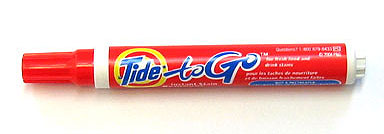
Sometimes laundry gets expensive in a foreign country.
Check to see what banks are available in the country you’re going to. Many countries often have branches that are linked with Bank of America so if you don’t have an account, open one up. It’s free and you won’t have to pay fees every time you grab some cash from the ATMs. The China Construction Bank, found all over China, doesn’t charge any fees as long as you have a BoA card. You can easily close your BoA account once returning to America.
Other important items are charger adapters for your specific country of origin. The outlets in America are not the same in every country and you do not want to be that person with the hair straightener exploding in your hair!
Also, to stay in touch with family and friends during your trip, set up a Gmail, Skype, Viber, and Whatsapp accounts. These are free ways to connect with your loved ones through email, phone calls, video and text messaging all through WiFi. You don’t want mom to get a $356 dollar phone bill because you accidentally used your data while roaming, do you?
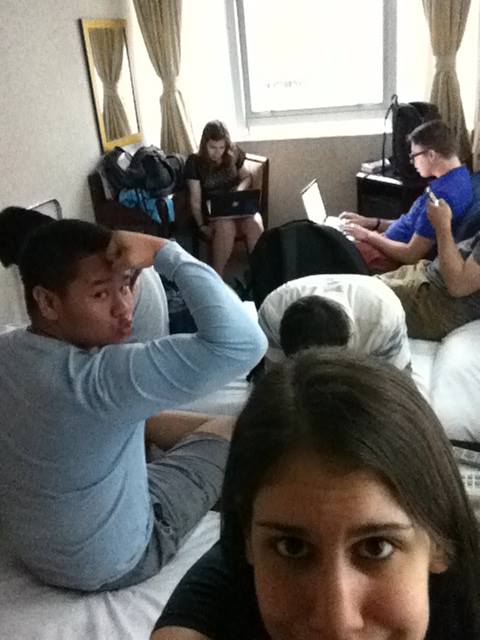
My group connects to the WiFi in our hotel in Hong Kong and immediately engross themselves in social media.
–Sam Levitz is a graduate of Brooklyn College and went on the CUNY Study Abroad trip to China the summer of 2013. Follow her on Instagram: slevitz
Follow the Campus Clipper on Twitter and Like us on Facebook!
Interested in more deals for students? Sign up for our bi-weekly newsletter to get the latest in student discounts and promotions and follow our Tumblr and Pinterest. For savings on-the-go, download our printable coupon e-book!







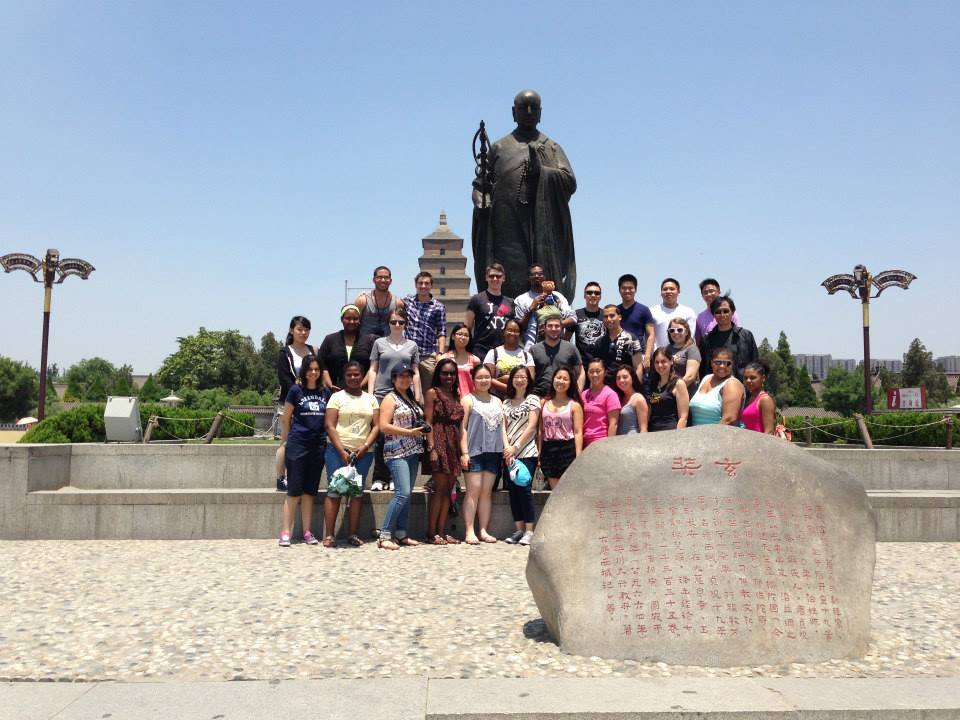
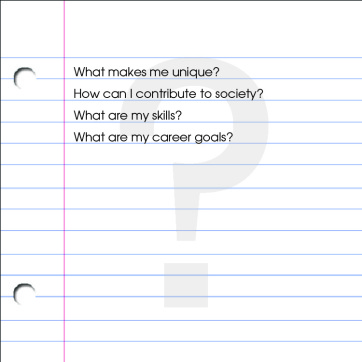


 This blog series is a serialized look at fashion as a function and inspiration in our everyday lives. It explores the urban young-adult aesthetic in modern American culture, specifically in New York City. If you are reading this series, you’re somewhat familiar with urban fashion trends or perhaps you fit the aforementioned demographic. The urban young-adult aesthetic likely saturates every form of media from music to films and other visual arts that you consume. You find that a touch of it lingers in the background track of your favorite dance song when you hear heavy platform shoes on hardwood floors or the clink of metal on some over accessorized clubgoer. You notice that the film adaptation of your favorite young-adult series uses the popular color scheme from the runway that year. It is no coincidence that fashion concepts marketed to young-adults are such popular motifs in other art forms. The young adult is powerful in any form of art. The confluence of their unique and modern generational experience fused with newfound independent thinking, without fail, makes every generation of young adults the most important shapers of culture.
This blog series is a serialized look at fashion as a function and inspiration in our everyday lives. It explores the urban young-adult aesthetic in modern American culture, specifically in New York City. If you are reading this series, you’re somewhat familiar with urban fashion trends or perhaps you fit the aforementioned demographic. The urban young-adult aesthetic likely saturates every form of media from music to films and other visual arts that you consume. You find that a touch of it lingers in the background track of your favorite dance song when you hear heavy platform shoes on hardwood floors or the clink of metal on some over accessorized clubgoer. You notice that the film adaptation of your favorite young-adult series uses the popular color scheme from the runway that year. It is no coincidence that fashion concepts marketed to young-adults are such popular motifs in other art forms. The young adult is powerful in any form of art. The confluence of their unique and modern generational experience fused with newfound independent thinking, without fail, makes every generation of young adults the most important shapers of culture.
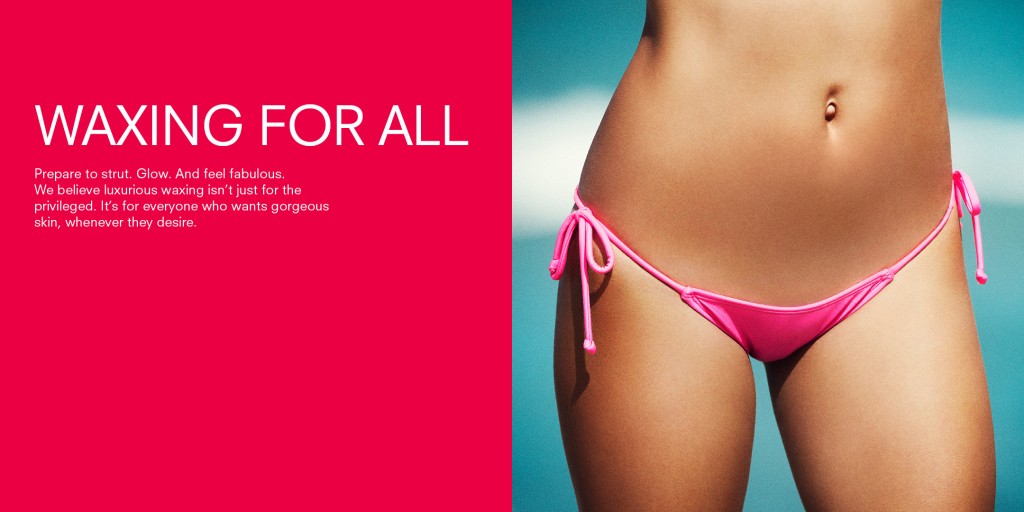

 Post-appointment payment was a breeze. We automatically scheduled a follow-up. There was again, refreshingly no pressure to buy a package deal of the body wash Alix suggested I purchase (though I did and I love it). There’s a handy chart at the desk for suggested tip amount broken down for each beauty procedure, and the option to leave tip in cash or by card.
Post-appointment payment was a breeze. We automatically scheduled a follow-up. There was again, refreshingly no pressure to buy a package deal of the body wash Alix suggested I purchase (though I did and I love it). There’s a handy chart at the desk for suggested tip amount broken down for each beauty procedure, and the option to leave tip in cash or by card.